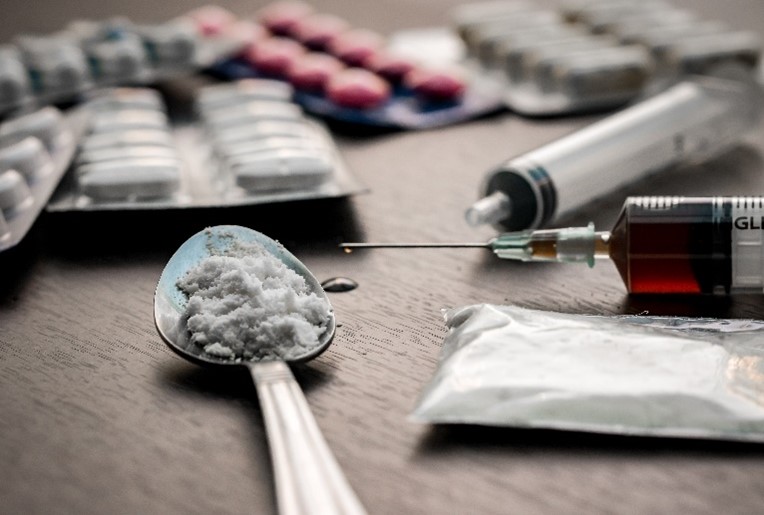Recognizing the need for help with addiction is a crucial first step towards recovery. Many people struggle to admit that they have a problem and often delay seeking professional help, hoping they can manage on their own. However, certain signs indicate that it’s time to consider a rehab center. This blog will explore five critical signs that suggest it’s time to seek help from a rehab center, emphasizing the importance of timely intervention for successful recovery.

1. Loss of Control Over Substance Use
One of the most telling signs that it’s time to seek help from a rehab center is the inability to control substance use. This loss of control manifests in various ways, including:
a. Increased Tolerance
Over time, the body builds a tolerance to substances, requiring higher doses to achieve the same effects. This escalation can lead to consuming dangerously high amounts, increasing the risk of overdose and severe health consequences.
b. Failed Attempts to Quit
Repeated unsuccessful attempts to quit or reduce substance use indicate a strong dependence. Despite recognizing the negative impacts, the individual finds it impossible to stop using the substance without professional help.
c. Obsessive Thoughts About the Substance
When thoughts about obtaining, using, and recovering from the substance dominate daily life, it’s a clear sign that addiction has taken hold. This preoccupation often disrupts daily activities and responsibilities.

2. Negative Impact on Health
Substance abuse takes a significant toll on physical and mental health. When addiction starts to manifest in health issues, it’s a crucial sign that professional intervention is needed.
a. Physical Health Decline
Long-term substance abuse can lead to various health problems, such as liver disease, heart issues, respiratory problems, and weakened immune function. Unexplained weight loss, frequent illnesses, and chronic fatigue are indicators that the body is suffering from the effects of addiction.
b. Mental Health Issues
Addiction often co-occurs with mental health disorders like depression, anxiety, and bipolar disorder. Substance abuse can exacerbate these conditions, leading to a dangerous cycle of self-medication and worsening mental health. Symptoms such as severe mood swings, paranoia, and hallucinations are red flags.
c. Neglect of Personal Hygiene
A noticeable decline in personal hygiene and grooming habits often accompanies severe addiction. Individuals may neglect basic self-care routines due to preoccupation with their substance use.
3. Deterioration of Relationships
Addiction not only affects the individual but also those around them. The strain on personal relationships is a significant indicator that it’s time to seek help from a rehab center.
a. Conflict with Family and Friends
Substance abuse often leads to increased conflicts and arguments with loved ones. Trust issues, broken promises, and erratic behavior can cause deep rifts in relationships, sometimes leading to estrangement.
b. Social Isolation
As addiction progresses, individuals may withdraw from social activities and isolate themselves from friends and family. This isolation can be a coping mechanism to hide their substance use or avoid judgment and intervention from loved ones.
c. Impact on Work and Responsibilities
The inability to fulfill work, school, or household responsibilities is a clear sign that substance use is out of control. Frequent absences, declining performance, and neglect of duties are common indicators.

4. Legal and Financial Problems
Addiction can lead to a host of legal and financial issues, which are strong signals that professional help is needed.
a. Legal Troubles
Engaging in illegal activities to obtain substances, being arrested for driving under the influence, or facing legal charges related to substance abuse are serious indicators that addiction is impacting one’s life to a dangerous extent.
b. Financial Strain
The cost of sustaining a substance habit can lead to significant financial problems. Individuals may find themselves in debt, unable to pay bills, or even resorting to theft or selling possessions to fund their addiction.
c. Job Loss
The repercussions of addiction on job performance and attendance can lead to job loss, further exacerbating financial strain and instability. Losing a job due to substance use is a critical sign that professional intervention is necessary.
5. Emotional and Psychological Distress
Persistent emotional and psychological distress is a profound sign that it’s time to seek help from a rehab center. Addiction often brings about intense feelings of hopelessness and despair.
a. Chronic Stress and Anxiety
Individuals struggling with addiction frequently experience chronic stress and anxiety. This constant state of unease can make it challenging to function in daily life and increases the likelihood of further substance use as a coping mechanism.
b. Feelings of Hopelessness and Despair
Addiction can lead to feelings of hopelessness, where the individual believes they will never be able to overcome their substance use. This despair can be overwhelming and is a significant sign that professional help is needed.
c. Suicidal Thoughts or Behaviors
The most severe indication of the need for professional intervention is suicidal thoughts or behaviors. Substance abuse can deepen feelings of worthlessness and hopelessness, leading individuals to believe that ending their life is the only escape. Immediate help from a rehab center is crucial in these situations.
The Benefits of Seeking Help from a Rehab Center
Recognizing these signs and seeking help from a rehab center can be life-changing. Rehab centers offer comprehensive treatment programs designed to address the multifaceted nature of addiction. Here are some benefits of seeking professional help:
1. Structured Environment
Rehab centers provide a structured environment that eliminates access to substances and minimizes triggers that can lead to relapse. This safe space allows individuals to focus entirely on their recovery.
2. Medical Detoxification
Many rehab centers offer medical detoxification to help manage withdrawal symptoms safely and comfortably. This process is often the first step in treatment, ensuring that the individual is physically stable before beginning therapy.
3. Therapeutic Support
Rehab centers offer various therapeutic modalities, including individual therapy, group therapy, cognitive-behavioral therapy (CBT), and holistic therapies. These approaches help individuals understand the root causes of their addiction and develop healthy coping mechanisms.
4. Peer Support
Being surrounded by others who are going through similar experiences can provide a sense of community and understanding. Peer support is a vital component of the recovery process, offering encouragement and accountability.
5. Family Involvement
Many rehab centers involve family members in the treatment process, helping to heal relationships and build a supportive home environment. Family therapy sessions can address dysfunctional dynamics and educate loved ones about addiction and recovery.
6. Aftercare Planning
A good rehab center will offer aftercare planning to support long-term sobriety. This may include ongoing therapy, support groups, and resources to help individuals reintegrate into their daily lives while maintaining their recovery.
Leading the Way Among Oklahoma City Rehab Centers
Rob’s Ranch stands out as a leader among Oklahoma City rehab centers when seeking the best care for addiction recovery. Located just outside the city, Rob’s Ranch offers a specialized program focused on holistic recovery for men, combining physical, mental, and spiritual healing. Their comprehensive approach includes personalized treatment plans, family involvement, and robust aftercare support, ensuring that every individual receives the care and guidance needed for lasting sobriety. Rob’s Ranch provides a nurturing and effective environment for those ready to take the first step towards recovery. Learn more about their exceptional services at Rob’s Ranch.
Conclusion
Recognizing the signs that it’s time to seek help from a rehab center is a crucial step towards recovery. Loss of control over substance use, health decline, deteriorating relationships, legal and financial problems, and emotional distress are all significant indicators that professional intervention is needed. Rehab centers provide a comprehensive and supportive environment that addresses the physical, emotional, and psychological aspects of addiction, offering individuals the best chance for successful recovery. If you or a loved one is experiencing these signs, don’t hesitate to reach out to a rehab center. Taking that first step towards seeking help can lead to a healthier, more fulfilling life free from the grips of addiction.
